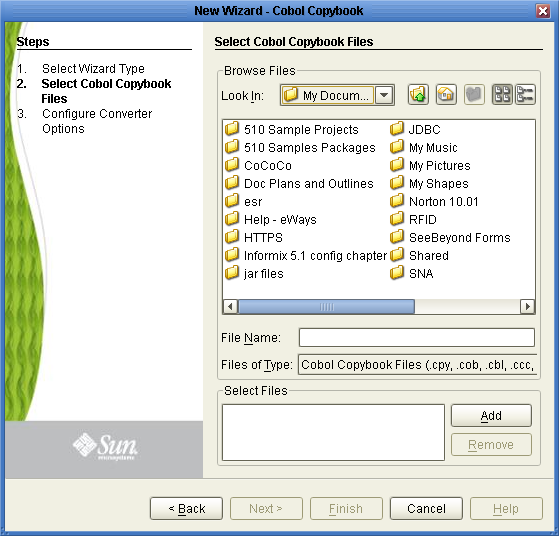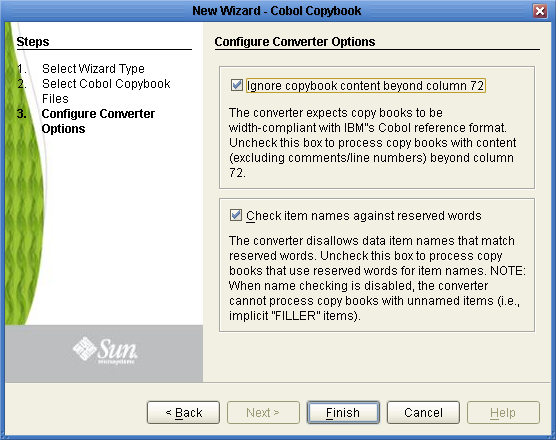| Skip Navigation Links | |
| Exit Print View | |

|
Developing OTDs for Oracle Java CAPS Application Adapters Java CAPS Documentation |
| Skip Navigation Links | |
| Exit Print View | |

|
Developing OTDs for Oracle Java CAPS Application Adapters Java CAPS Documentation |
Developing OTDs for Application Adapters
Date and Time Stamp Requirements
Installing SAP JCo for SAP BAPI
To Install SAP JCo on Windows 32
SAP JCo and SAP IDoc Class Library Installation
To Download the SAP Java IDoc Class Library
To Create IDoc OTDs Directly From SAP
To Create IDOC OTDs From a Description File
Exporting the IDOC File from SAP
To Download the IDoc Description File From SAP
Saving the IDoc Description File (After 4.6)
To Save the IDoc Description File From SAP
Configuring Your System Before Creating the OTD
Configuring NetBeans to Work with Siebel
Installing seebeyond.sif for Siebel 7.5.x
Installing SiebelMessage XSD Generation Process.xml for Siebel 7.7 and 7.8.x
Encoding Behavior for Redefinitions
enableUnmarshalValidation(boolean enable) Method
marshal(String charset) Method
marshal(OtdOutputStream out) Method
marshal(OtdOutputStream out, String charset) Method
unmarshal(OtdInputStream in) Method
unmarshal(OtdInputStream in, String charset) Method
unmarshal(byte[] in, String charset) Method
unmarshalFromString(String in) Method
useEncoding(String enc) Method
Creating an Oracle Applications OTD
To Create an Oracle Applications OTD
Exposed Oracle Applications OTD Nodes
SWIFT Alliance Gateway Adapter OTD Features
Generating DTDs from PeopleTools 8.13
Generating and Publishing an XML Test Message
To generate a PeopleSoft XML message
Extracting and Viewing the XML Test Message
Generating a DTD for the XML File
This topic describes how to use the COBOL Copybook Converter OTD Wizard to build OTDs and introduces the Converter’s OTD methods. You use the COBOL Copybook wizard within NetBeans IDE to create Copybook Converter OTDs. These OTDs can then later be used in Collaboration Definitions to create the business logic behind the Collaborations.
The New Object Type Definition Wizard window appears, displaying the available OTD wizards.
The New Wizard - Cobol Copybook window appears.
Figure 15 COBOL Copybook Wizard—COBOL Copybook Selection

The Configure Converter Options page appears.
Figure 16 COBOL Copybook Wizard—Configure Converter Options

Ignore copybook content beyond column 72: The Converter expects copybooks to be width-compliant with IBM’s COBOL reference format. Deselect this box to process books with content (excluding comments/line numbers) beyond column 72. Default: enabled (box is checked).
Check Item names against reserved words : The Converter disallows data item names that match reserved words. Deselect this box to process copy books that use reserve words for item names. When name checking is disabled, the Converter cannot process copy books with unnamed items (i.e., implicit ”FILLER’ items). Default: enabled (box is checked).
The OTD Editor window appears, displaying the OTD.
New functionality in COBOL Copybook Converter 5.1.2 and above, allows for more accurate parsing of data entries. The Converter’s parser no longer assigns globally unique names to identical data entries. If there are more than two data entries with identical names, level numbers, and same direct parent data entry, an exception will be thrown at parsing time, as follows:
com.stc.cococo.builder.CocoParseException: CCCB4200: Parse exception at line 126, column 64, item (n/a), token (n/a): CCCB4201: Copybook item processing error. CCCB4228: Identical data name ’9 DEDUCTIBLE-LOSS-SETTLMNT-COOL FQN = FORMATTER-COPYBOOK:SEEB-GROUP-LST-END-3-0006RG:NEW-IMPORT-GROUP-LST-END-3: IMPORT-GRP-LST-END-3-0026EV:IE01-ENDORSEMENT-SUBJEC-0026ET: DEDUCTIBLE-LOSS-SETTLMNT-COOL’ found under parent data item ’7 IE01-ENDORSEMENT-SUBJEC-0026ET FQN = FORMATTER-COPYBOOK: SEEB-GROUP-LST-END-3-0006RG:NEW-IMPORT-GROUP-LST-END-3 :IMPORT-GRP-LST-END-3-0026EV:IE01-ENDORSEMENT-SUBJEC-0026ET’